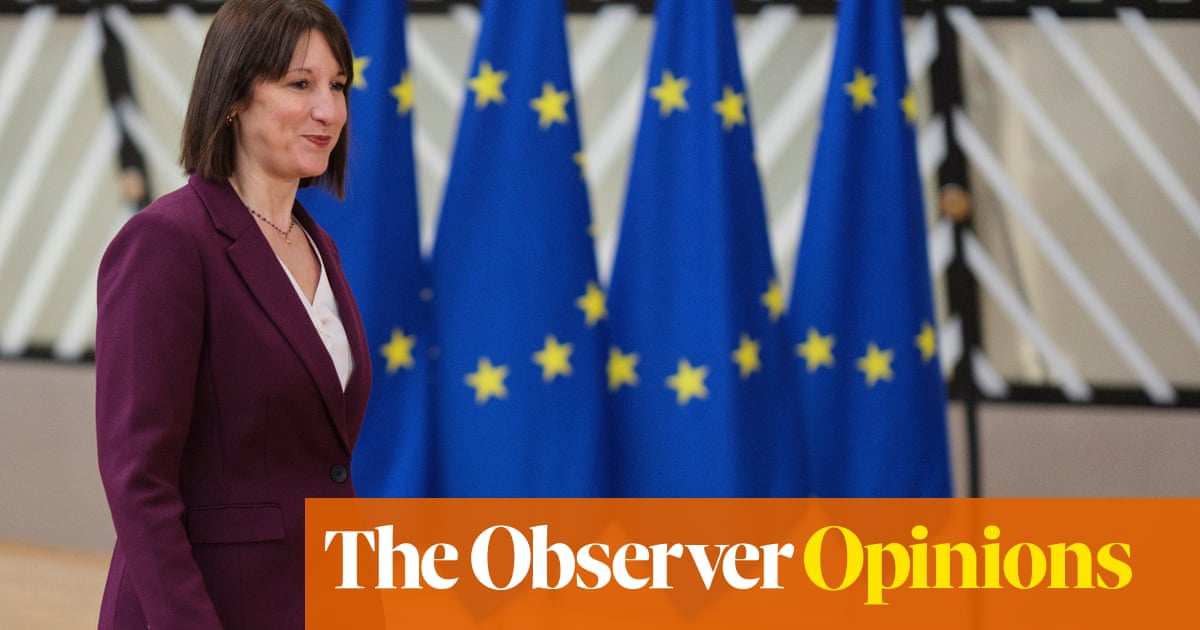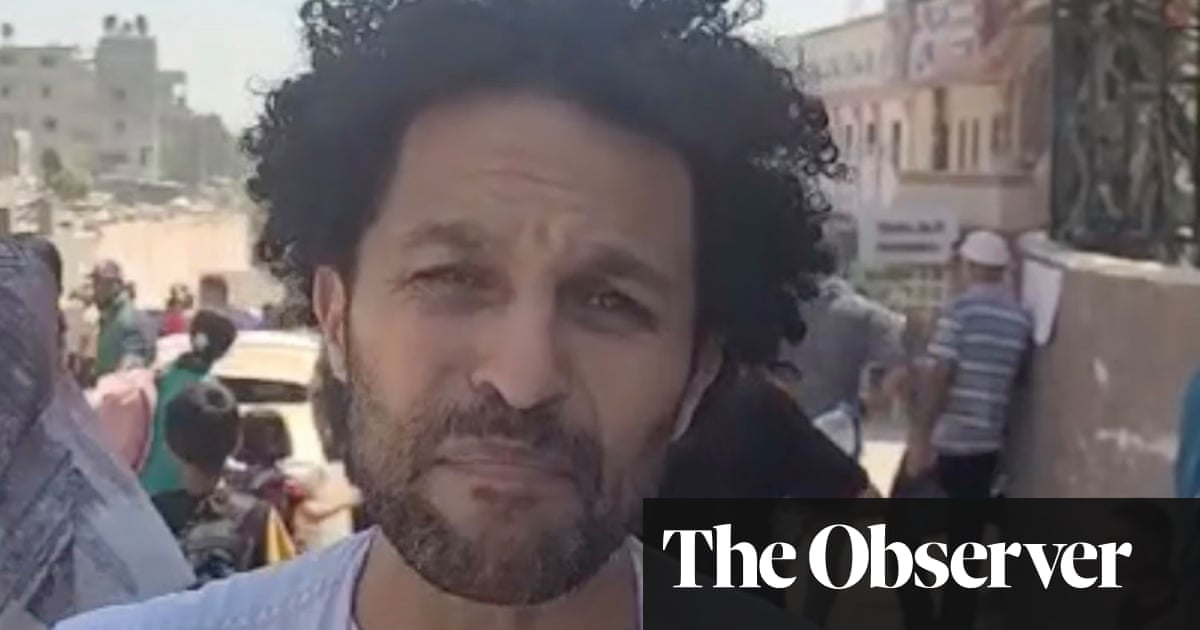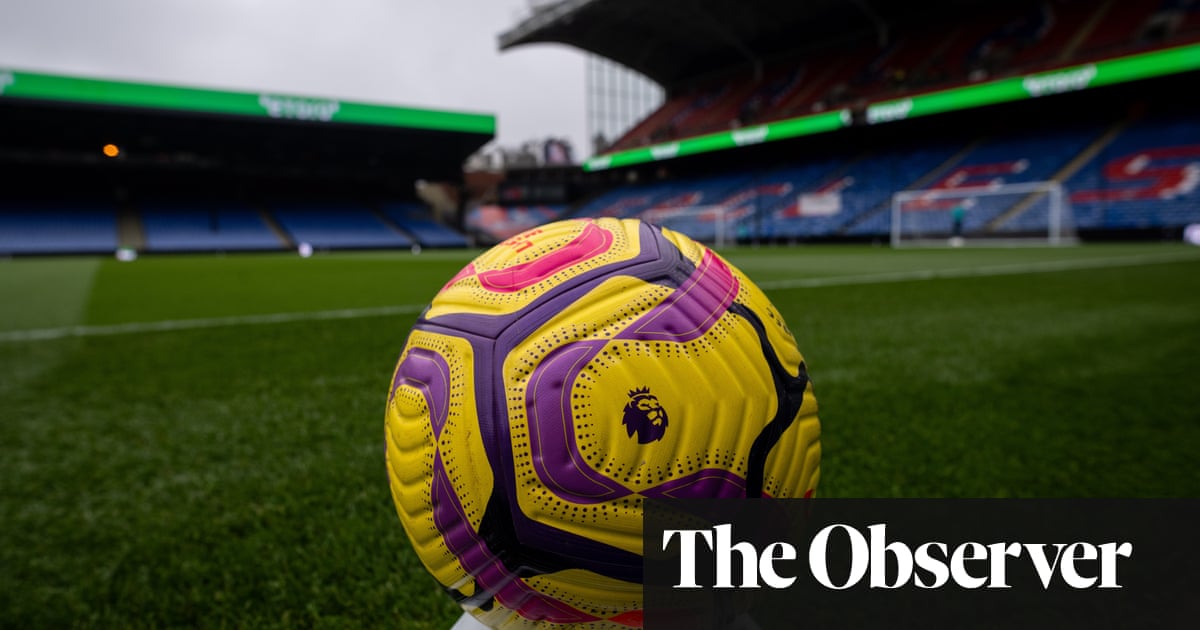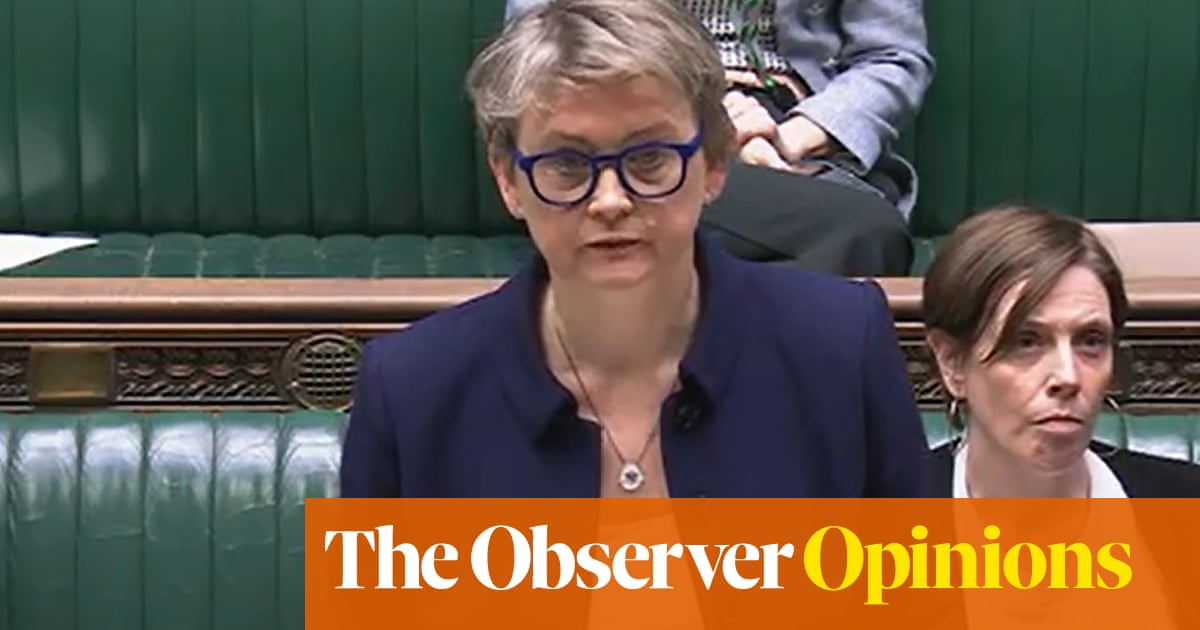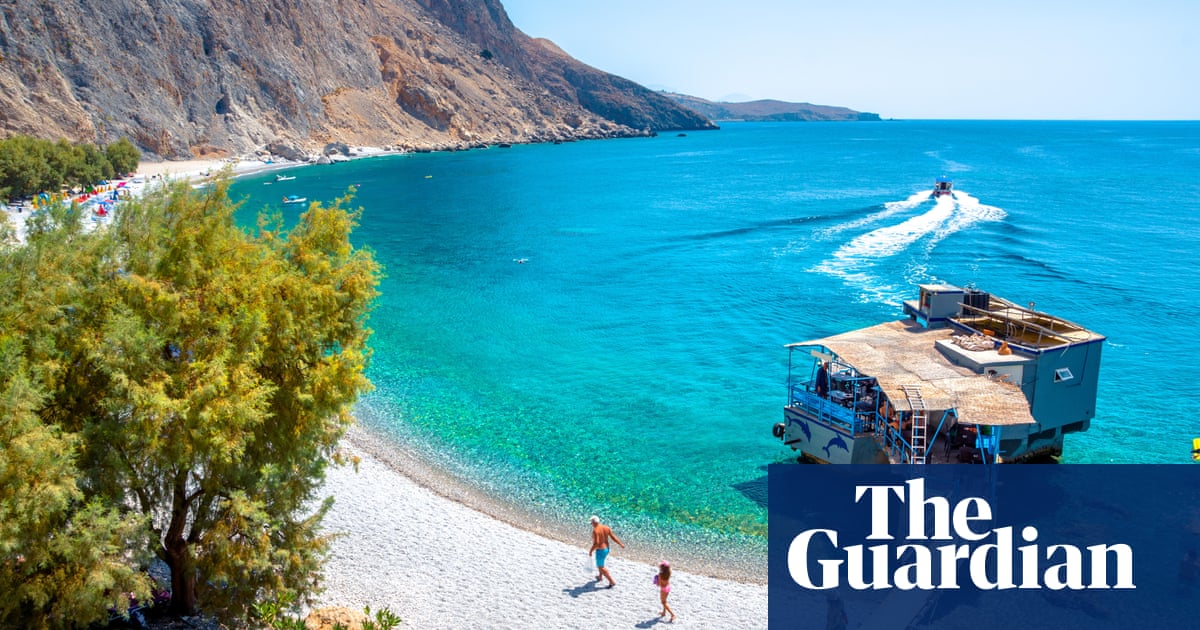Police clashed with protesters in the Georgian capital Tbilisi early on Friday, after the country’s ruling party said the government would suspend talks on European Union accession until 2028.
The country’s interior ministry said three police officers were injured, two of whom were hospitalised.
Police fired water cannon and deployed pepper spray and teargas to disperse protesters as masked people tried to smash their way into the parliament. Some protesters tossed fireworks at police while shouting “Russians” and “Slaves!”
Thousands of pro-EU protesters had blocked streets in the capital before the altercations began. The country’s pro-EU figurehead president, Salome Zourabichvili, accused the government of declaring “war” on its own people and confronted riot police, asking whether they served Georgia or Russia.
“Today marks a significant point, or rather, the conclusion of the constitutional coup that has been unfolding for several weeks,” she told a news conference alongside opposition leaders. “Today, this nonexistent and illegitimate government declared war on its own people,” she added, calling herself the country’s “sole legitimate representative”.
The government announcement came hours after the European parliament adopted a non-binding resolution rejecting the results of Georgia’s 26 October parliamentary elections, alleging “significant irregularities”.
The resolution called for new elections within a year under international supervision and for sanctions to be imposed on top Georgian officials, including the prime minister, Irakli Kobakhidze.
“Georgian Dream didn’t win the elections, it staged a coup. There is no legitimate parliament or government in Georgia,” said 20-year-old demonstrator Shota Sabashvili. “We will not let this self-proclaimed prime minister destroy our European future.”
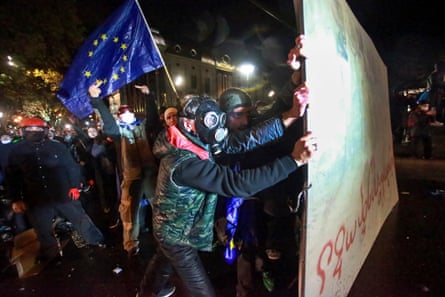
Georgia’s relations with the EU have deteriorated sharply in recent months as Brussels has alleged that the government had resorted to authoritarian measures and adopted pro-Russian stances.
The ruling Georgian Dream party says it is not pro-Russian, and that it is committed to democracy and integration with the west. It says it still wants to join the EU eventually, but has repeatedly engaged in diplomatic feuds with Brussels in recent years, while deepening ties with neighbouring Russia.
Georgian Dream has accused the EU of “a cascade of insults”, saying in a statement it was using the prospect of accession talks to “blackmail” the country, and to “organise a revolution in the country”.
As a result, it said: “We have decided not to put the issue of opening negotiations with the European Union on the agenda until the end of 2028. Also, we refuse any budgetary grant from the European Union until the end of 2028.”
The South Caucasus country of 3.7 million has the aim of EU accession written into its constitution and has long been among the most pro-western of the Soviet Union’s successor states.
With months of the downturn in relations, the EU had said that Georgia’s application for membership was frozen.
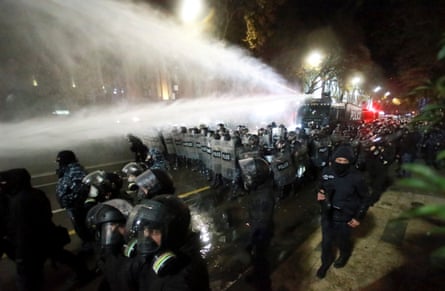
There was no immediate formal comment from the EU on Georgian Dream’s statement. But an EU official said the impact of Thursday’s move was huge, adding the government was doing what the EU had feared and had hoped it would not.
Opinion polls show that about 80% of Georgians support EU membership, and the bloc’s flag flies alongside the national flag outside virtually all government buildings in the country.
The pro-western opposition reacted to Georgian Dream’s announcement with fury as protesters massed. Local media reported that protests that erupted in provincial cities.
Giorgi Vashadze, a prominent opposition leader, wrote on Facebook: “the self-proclaimed, illegitimate government has already legally signed the betrayal of Georgia and the Georgian people.”
President Zourabichvili, a pro-EU critic of Georgian Dream whose powers are mostly ceremonial, said the ruling party had “declared not peace, but war against its own people, its past and future”.
Zourabichvili’s term ends in December, and Georgian Dream has nominated a former lawmaker with hardline anti-western views to replace her.
The opposition said that an October election, in which official results gave the Georgian Dream bloc almost 54% of the vote, was fraudulent and have refused to take their seats. Western countries have demanded an inquiry into irregularities. A global research and data firm called the official results reported by the electoral commission “statistically impossible”.
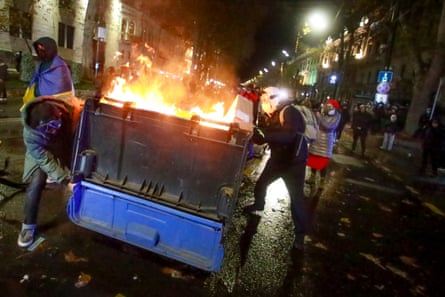
Both Georgian Dream and the country’s election commission say the election was free and fair.
Earlier on Thursday, prime minister Kobakhidze claimed that EU membership might harm Georgia’s economy because it would require Tbilisi to cancel visa-free agreements and trade deals with other countries.
The EU gave Georgia candidate status in December 2023, but has said that a raft of laws passed since by Georgian Dream, including curbs on “foreign agents” and LGBT rights, are authoritarian, Russian-inspired, and obstacles to EU membership.
Foreign and domestic critics of Georgian Dream say the party, which is seen as dominated by its billionaire founder, ex-prime minister Bidzina Ivanishvili, is steering Georgia back towards Moscow, from which it gained independence in 1991.
Russia and Georgia have had no formal diplomatic relations since Moscow won a brief 2008 war, but have had a limited rapprochement recently.
Russian President Vladimir Putin, speaking during a visit to Kazakhstan, praised the “courage and character” he said Georgian authorities had shown in passing the law on foreign agents, which domestic critics have likened to Russian legislation.
With Reuters and Agence France-Presse

.png) 1 month ago
11
1 month ago
11




